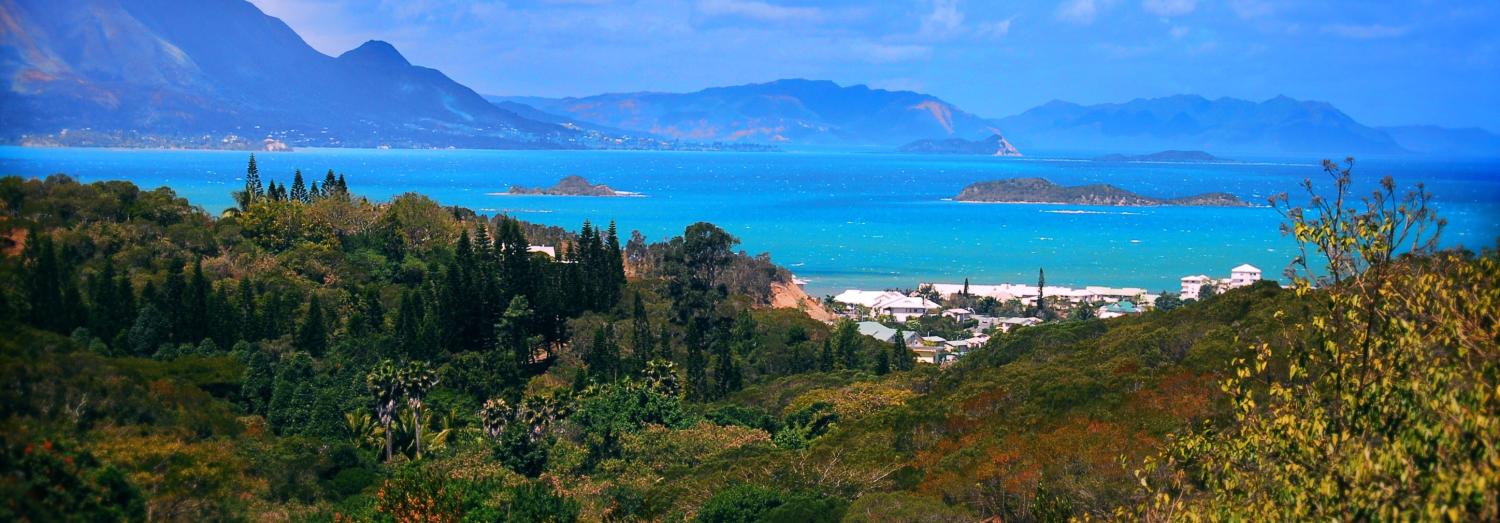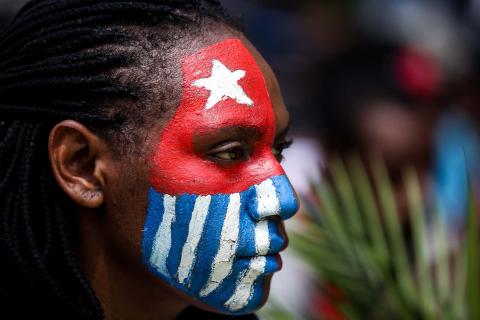Last month, a year before the deadline for the referendum on independence from France, French Prime Minister Édouard Philippe visited the semi-autonomous territory of New Caledonia.
Philippe is anxious about potential unrest. In October, a special delegation of New Caledonians expressed their concerns to the UN decolonisation committee in New York. According to them, the Noumea Accord (the territory's roadmap leading to the 2018 referendum) is not being applied correctly.
How this situation unfolds will be of significant interest to the region.
Memories of painful 'events'
New Calendonia has struggled with instability in the past, with the most notable example being the évènement, as the locals call it, in the 1980s. Despite decolonisation processes in territories around the globe, French governments succeeded in curtailing self-determination among the Kanak population for three decades until the territorial elections of 1984. That year, the influential indépendandtiste Jean-Marie Tjibaou proclaimed the creation of the sovereign state. The Kanak and Socialist National Liberation Front (FLNKS) rose up against loyalists of the territory, leading to conflict along a distinct ethnic divide. In 1988 violence reached its peak with the deaths of 21 people in a hostage crisis in Ouéva.
This violence pushed both sides to open dialogue, which led to the signing of the Matignon-Oudinot Accords that same year. These agreements offered institutional and economic guarantees to the Kanaks and planned a ten-year development program that led to the negotiation and ratification of the Noumea Accords on 5 May 1998. The Noumea Accords, in turn, prepared for the progressive transfer of certain powers of self-determination to the locally elected government of New Caledonia. France kept the five sovereign powers (defence, foreign affairs, currency, justice, and public order) until 2018, and the organisation of a referendum for independence. The goal of this referendum (the first of a possible three from 2018 to 2022) is to vote on three topics: the transfer of all sovereign powers to New Caledonia, the admittance of 'full responsibility' international status, and incorporating nationality into citizenship.
Sources of instability
The potential for instability of a sovereign New Caledonia has three dimensions: social, political, and economic.
First, there is a social issue. At the time of the last census, New Caledonia had around 268,000 inhabitants. Kanaks made up 39%, while Europeans made up 27%. The others (populations feeling Caledonian and not affiliated with any other ethnic group proposed) represent 20% of the population, followed by smaller ethnic groupings. As a proportion of the population, the Kanaks represent the largest single ethnic group on the territory. However, when comparing the Kanaks' numbers against the total non-Kanaks, the native population is a minority. This dynamic can lead to tension.
Second, the political and legal situation of the territory is complex. The Noumea Accords generated a particular institutional landscape in New Caledonia. The French Constitution had to be modified to create the 'Transitional provisions relating to New Caledonia', resulting in the creation of a special and unique 'New Caledonian' citizenship.
This special status preserves voting rights in the referendum for long-term residents of New Caledonia. Only people with ten years' residency to 1998 and their descendants are able to participate in the referendum. This also creates a tension among the population living on the island, many of whom have arrived in the years since 1998 and expect to have a say on the territory's future sovereignty.
Finally, the fragile economy is an important source of instability in New Caledonia, a resource-rich territory with ample hydrocarbons, fish stocks and about a quarter of the world's nickel reserves. The nickel industry has always been important for the development of the territory's economy. Between 2004 and 2014, the metal's relatively high price accrued important economic benefits for New Caledonia; however, the past three years have seen prices collapse, and the industry has suffered as a consequence.
New Caledonia's economy is now in bad shape, making the territory's financial dependence on France more pronounced. The cost of public services in New Caledonia averages 350 billion CFP francs per year (AU$1.92 billion), half of which is paid for by the French central government. Various infrastructure projects have been financed by France and/or the EU to sustain New Caledonia's economy. Today, France's financial support makes up more than 15% of the territory's GDP. Without this support, it would be difficult for New Caledonia to finance its own public service and to sustain its economy. This, by itself, could contribute to anxiety on the island.
This instability is not only a worry for France, but also for the regional community.
For Australia and New Zealand, the French territory is of strategic importance. Over the past few years, China has been increasing its engagement with the region. As Australian former diplomat Denise Fisher wrote about New Caledonia, 'at a time when Chinese engagement … can potentially alter our seaways and immediate neighbourhood, a stable ally at the western end of the South Pacific is an asset'.
What can be done
It is in the region's best interest to keep New Caledonia stable. But what can be done?
On a societal level, both Kanaks and non-Kanaks need to find common ground moving forward. Although the yes or no nature of the referendum does not leave much space for consensus, both camps need to form a shared vision of how the territory can unify post-referendum.
On the political front, the French Prime Minister mentioned this month that 'everything possible will be done to identify everyone who is not yet registered on the electoral lists but who is qualified to be'. Having a clear electoral roll would simplify the election process.
On the economy, few solutions have been offered over the past few years. Philippe Gomès, leader of the pro-France group, suggests the creation of a 'fund for the future generations' that would be fed by revenues from the nickel industry. This would allow the country to create sufficient savings for the generations to come, and is a model used in other Pacific island countries, such as Tuvalu and Timor-Leste. But this would not help immediately, and would be challenging because the nickel industry is suffering currently. The economy also needs to diversify, with the government investing more in other economic activity, such as tourism, agriculture and fisheries. It could also look to explore opportunities in its immediate waters, rich in cobalt, phosphate and other hydrocarbons.
At the moment, the situation in New Caledonia should be watched closely by its neighbours. According to a recent poll, New Caledonians are likely to vote to remain a part of France. However, there is still one year to go before the referendum. No doubt Canberra, Paris and the region in general will be paying close attention.


